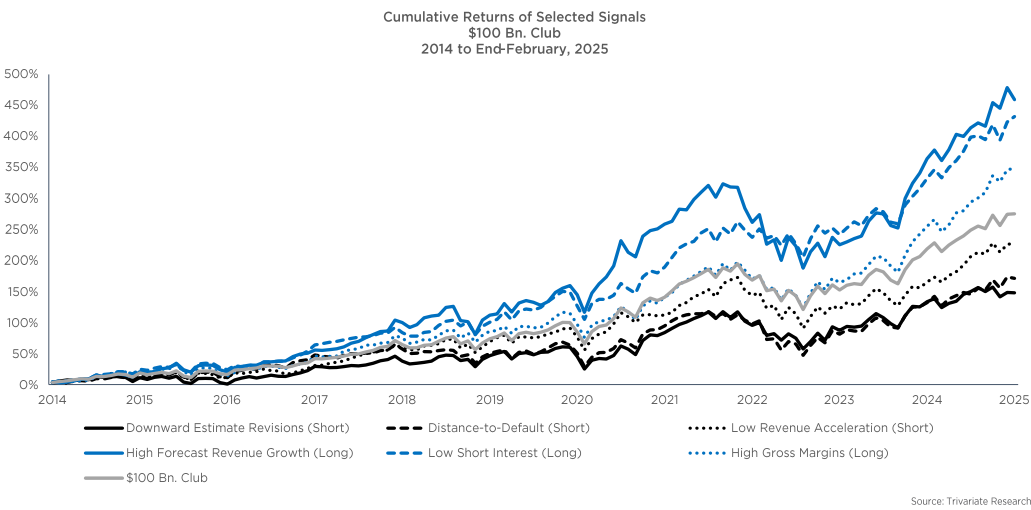Fortnightly Publication Highlighting Latest Insights From IRF Providers
Company Research
Outside of AI, why invest in the US?
US equities remain the world’s most important market, but passive benchmarks are distorted by AI concentration risk. Durable alpha lies in structural themes beyond AI. Power infrastructure (Constellation, Duke, NextEra) will benefit from grid bottlenecks as data centres drive demand. Re-industrialisation (Caterpillar, Honeywell, Rockwell) reflects reshoring and automation. The energy transition (Dominion, Enphase, ExxonMobil) requires trillions in capex. Housing scarcity (D.R. Horton, Home Depot, Lennar) is a structural imbalance. Healthcare innovation (Abbott, Eli Lilly, UnitedHealth) rides longevity and med-tech advances. Cybersecurity (Cisco, CrowdStrike, Palo Alto) is non-discretionary. Generational wealth transfer (BlackRock, Morgan Stanley, Schwab) reshapes capital flows. The AI productivity super-cycle is real, but thematic allocations across these shifts offer broader, smarter US exposure.
Edition: 220
- 19 September, 2025
China Pharma’s strategic pivot and global impact
Healthcare
David Scott argues US efforts to lower drug prices are unintentionally accelerating the rise of Chinese pharmaceutical firms. Rather than exporting drugs, Chinese companies are licensing them to US firms and avoiding tariffs. This shift reflects a deeper evolution: China Pharma is moving from capital-intensive manufacturing to IP-driven innovation, as rising R&D-to-sales ratios confirm. Meanwhile, incumbents like Eli Lilly and Novo Nordisk face over-earning backlash, political scrutiny and disruptive competition. AI is also accelerating China’s lead times on drug development, especially in areas like obesity. David highlights Jiangsu Hengrui, 3SBio, Hansoh and Innovent as part of this structural shift. While many US investors tell him that they “can’t buy China”, he warns they can’t afford to ignore it, given the bearish implications for Western pharma incumbents.
Edition: 215
- 11 July, 2025
Which stocks >$100bn m/cap are buys now?
With investors searching for value in the current market sell-off and likely looking to buy names among the safer, larger cap universe, Trivariate has assessed the performance of several metrics within the stocks >$100bn m/cap to see if they could systematically pick winners from losers. The best performing signal over the last 10 years, was buying the companies in the top third of forecasted revenue growth, while the second best was buying the one-third of companies with the lowest short interest. The worst performing signals were those in the highest third of leverage and stock volatility (distance-to-default) and those with the worst third of downward earnings revisions. Current long ideas from Trivariate’s $100bn Club Framework include all the Mag 7 (except Tesla), as well as Eli Lilly, Visa and UnitedHealth. Shorts include Goldman Sachs, PepsiCo, Caterpillar and Starbucks.
Edition: 207
- 21 March, 2025
Trump transition, FDA/RFK risks & Medicare Advantage/Healthcare Services outlook
Healthcare
The Trump transition, Cabinet Nominations and Republican healthcare agenda are front and centre for healthcare services, managed care and pharma / biotech investors. With near-daily headlines from Washington driving sentiment in healthcare equities, Aldis Institutional's policy-focused events provide investors with timely and actionable insights into the DC landscape. This differentiated platform combines small group conversations with key stakeholders and policymakers, with real-time market commentary from Aldis' senior team. Recent and upcoming event topics include the outlook for Medicare Advantage, Hospitals, FDA Changes Under the Trump Administration and near-term catalysts such as FDA compounding policy impact on Hims & Hers Health, Novo Nordisk and Eli Lilly.
Edition: 201
- 13 December, 2024
GLP-1s and FDA compounding outlook
Healthcare
Aldis Institutional is hosting an ongoing series of small group events with industry contacts and stakeholders on the outlook for US FDA action on compounding GLP-1s. Earlier this year, the FDA announced the end of the shortage of tirzepatide - which would have prevented companies like Hims & Hers Health and LifeMD from producing lower-cost compounded versions. As a result of industry ligation, FDA is reviewing this decision - creating uncertainty for patients seeking to access GLP-1s, telemedicine companies and manufacturers like Novo Nordisk and Eli Lilly. For access to the events or the Aldis content library of past transcripts please contact us for further details.
Edition: 198
- 01 November, 2024
Novo Nordisk (NOVOB DC) Denmark
Healthcare
Market fears on pricing are far too pessimistic. Intron models a 2027 Wegovy price of $200/mth in the US (~20% above consensus) and is ~30% above consensus on Novo’s Obesity portfolio in 2030. They believe Wegovy will become the US market leader by volume and will benefit from step edits from 2027 onwards. Intron models Commercial & Medicare channels separately for both price & volume and shows compelling evidence that Novo and Eli Lilly will shut out new entrants in the late 2020’s. Intron’s own cost/benefit analysis shows Wegovy from 2027 has broadly similar value to Ozempic, which has extremely strong market access.
Edition: 195
- 20 September, 2024
Novartis (NOVN SW) Switzerland
Healthcare
Contrary to market expectations, Dr Amit Roy believes NOVN is likely to win the $6bn+ early-stage breast cancer market, beating Lilly - Kisqali carries the lowest discontinuation rate, differing from Verzenio in lacking its compliance limiting troublesome diarrhoea side effect. NOVN is uniquely utilising a dose lower than its metastatic trials to further improve compliance, while additionally administering the drug for three years instead of two as seen with its competitors. Unrivalled metastatic overall survival efficacy compared to Verzenio leads Foveal to see Kisqali both meeting its endpoint in NATALEE, and likely demonstrating better efficacy than seen so far with Verzenio in MONARCH-E.
Edition: 153
- 03 February, 2023
Technology
David Ricks, a Non Executive since 2018, purchased $337,000 of stock on the 27th September at $280.56, increasing his holding by 30%. His only previous trades in the company were both for less than $20,000. He has been an extremely rare buyer across his roles. As Chair and CEO at Eli Lilly his only buy was for $500,000 in October 2019, a purchase that was very well timed, and currently Adobe do not have a requirement for directors to buy shares to meet ownership requirements.
Edition: 145
- 30 September, 2022
